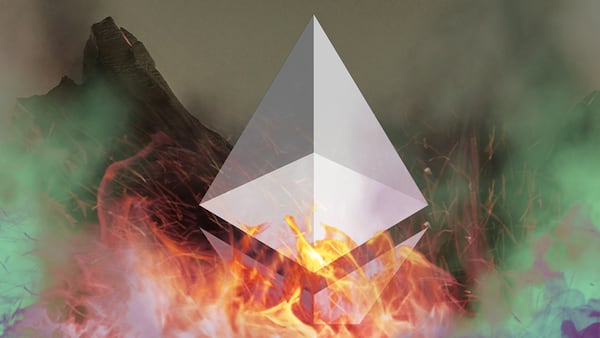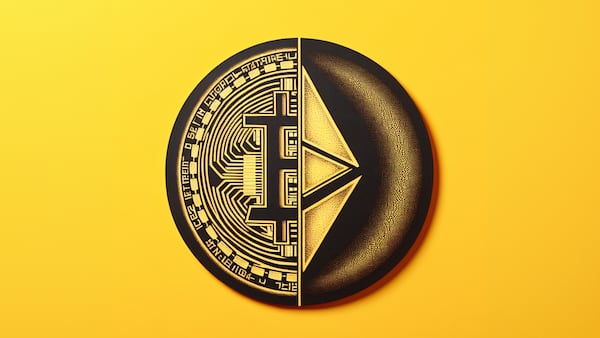- New new proposal from Vitalik Buterin could help speed up Account Abstraction adoption.
- Account Abstraction promises to make Ethereum more intuitive and safer to use.
- The update could come as soon as the fourth quarter of 2024.
DeFi on Ethereum is often clunky and unintuitive, with few safeguards for new entrants.
One highly anticipated improvement is Account Abstraction — a new way for Ethereum wallets to handle transactions.
Still, there’s a hitch.
Account Abstraction is incompatible with existing wallets, which is slowing its adoption.
A recent proposal from Ethereum co-founder Vitalik Buterin may change that. Called EIP-7702, the proposal creates a route for existing wallets to use Account Abstraction — which was previously difficult to achieve.
“It’s still a very early proposal, so we need to evaluate all the rough edges,” Ethereum core developer Marius van der Wijden told DL News.
EIP-7702 adds a new transaction type that allows existing wallets to emulate the functions of Account Abstraction wallets, Van der Wijden said.
If successful, the proposal will unlock new transaction types, prevent users from losing access to their funds through email recovery, and even facilitate new use cases for the top smart contract network.
Van der Wijden said EIP-7702 will probably be included in Ethereum’s next major upgrade — dubbed Pectra — scheduled for the fourth quarter of 2024.
A step closer to adoption
Account Abstraction has been around for a while.
In March 2023, a previous update introduced an Ethereum feature called ERC-4337, which allowed developers to start building Account Abstraction wallets.
A lack of support for Account Abstraction, coupled with no easy way for users to switch over to the new wallet type, has slowed adoption.
At the same time, another proposal, called EIP-3074, introduced a change that would allow those with non-Account Abstraction wallets to delegate their control to smart contracts, allowing users to access Account Abstraction features.
While EIP-3074 could aid Account Abstraction adoption, many developers criticised it because it puts users’ funds at increased risk.
The answer may be Buterin’s EIP-7702 proposal.
EIP-7702 aligns the two previous routes to Account Abstraction — EIP-3074 and ERC-4337 — into “one unified Account Abstraction roadmap,” Alex Jupiter, a senior product manager at MetaMask, told DL News.
The result is a streamlined way for existing wallets to use all the features of Account Abstraction without the risks of EIP-3074.
New transaction types
On the surface, Account Abstraction wallets function the same as existing wallets. But under the hood, they have the ability to use smart contracts to manage funds, allowing for a host of new features that could help increase DeFi adoption.
The most obvious improvement is the ability to program transactions, allowing blockchains to replicate services banks and other money-transmitting services offer, such as scheduling payments.
Payments provider Visa has previously highlighted the potential of Account Abstraction for automatic payments.
The ability to sponsor transactions is another appealing feature that Account Abstraction unlocks. Sponsoring transactions means allowing another party — such as a wallet provider, DeFi protocol, or blockchain — to pay for a user’s transaction fees.
Programming transactions can also help make using DeFi on Ethereum more intuitive.
Currently, when users want to swap tokens on a decentralised exchange, or send tokens to a different blockchain via a crypto bridge, they must sign multiple transactions at different stages of the process.
With Account Abstraction, everything can be bundled into a single transaction, allowing for a smoother experience.
Lost your private key? Don’t worry
Account Abstraction should also make using DeFi safer.
When a user creates an Ethereum wallet they receive a private key, usually abstracted to a sequence of words called a recovery phrase.
This key is the only way a user can access their funds. If the key is lost, stolen, or if a user’s wallet is accidentally uninstalled or the wallet account is deleted, the funds it controls could be lost forever.
With Account Abstraction, it is possible to implement a recovery process in which a user can designate multiple trusted individuals as recovery agents. This can consist of an email address or other forms of identification, such as Google Authenticator for two-factor authentication.
The process is similar to creating and securing an account in the web2 world, but it is executed through a decentralised network.
Tim Craig is a DeFi Correspondent at DL News. Got a tip? Email him at tim@dlnews.com.







